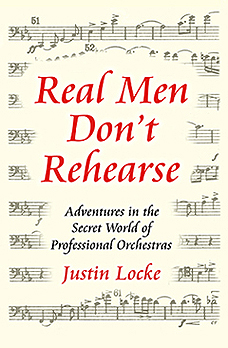Today’s post is yet another little tip about being creative, and about effective performance and presentation, and just good health in general.
For many people, performing is a very stressful and frightening experience. To be perfectly honest, when I give a talk to a large crowd of people, I do get a big adrenaline rush from the experience. It is a form of fear, but that’s part of the fun.
 Anyway, speaking of being creative and original, one of the reasons why people conform so often is because they are afraid of what will happen to them if they don’t. Fear is a big part of life, and if you want to take charge of your life, you have to have some skills in managing fear.
Anyway, speaking of being creative and original, one of the reasons why people conform so often is because they are afraid of what will happen to them if they don’t. Fear is a big part of life, and if you want to take charge of your life, you have to have some skills in managing fear.
While you usually can’t eliminate all causes of fear or the fear that is inside of you itself, you can control your fear in terms of its manifestation in symptomology. What I mean by that is, you may not be able to slow down your heart rate, and you may not be able to stop beads of sweat from pouring down your forehead, but one of the most common physical manifestations of fear happens in your breathing. And this, you can control. And by controlling the symptom, to a certain extent you are managing, or even eliminating, the fear itself.
When we become afraid, unless we actively do something about it, our breathing tends to get very light and shallow. This is a natural response which probably had something to do with one of our distant ancestors making less noise when a saber toothed tiger was sashaying by. While it made sense in that situation to make your breathing quiet and shallow– or briefly stop breathing all together– in modern life, when you are sitting in a cubicle at the end of the quarter, nonstop relentless anxiety can cause you to spend an entire day breathing shallow, and this serves no useful purpose.
Dr. Andrew Weil, that New Age doctor that you see in health food store magazines a lot, made a CD about breath and breathing techniques for health which I highly recommend. A sample of his recommendations are here:
http://www.drweil.com/drw/u/ART00521/three-breathing-exercises.html
Sorry, I don’t know the title of the CD offhand. But the point he made in the CD was, you can’t necessarily consciously directly control your heartbeat. But your diaphragm and your lungs work both involuntarily while you’re asleep, and you have voluntary control them while you’re awake. This is a very unusual thing in terms of what muscles you control and which ones you don’t, as your breath (and maybe your eyelids) are some of the few muscles you have a dual control of. And the function of breathing has tremendous affect on your overall health and well-being.
So whether you are nervous about being creative, or giving a performance, or you’re just wondering if you will have a job next month, well, you can’t necessarily control on awful lot of these frightening external forces and unknowns in the world, but you can directly immediately and consciously control how deeply you are breathing.
I have just recently discovered that if I am focused on breathing really fully and deeply and at maximum efficiency, it is pretty much impossible for me to think stressful worrisome thoughts at the same time. I have no scientific data to support this, but it sure works for me, and I thought I would share it with you.
© Justin Locke


One Response to Managing fear with good breathing habits